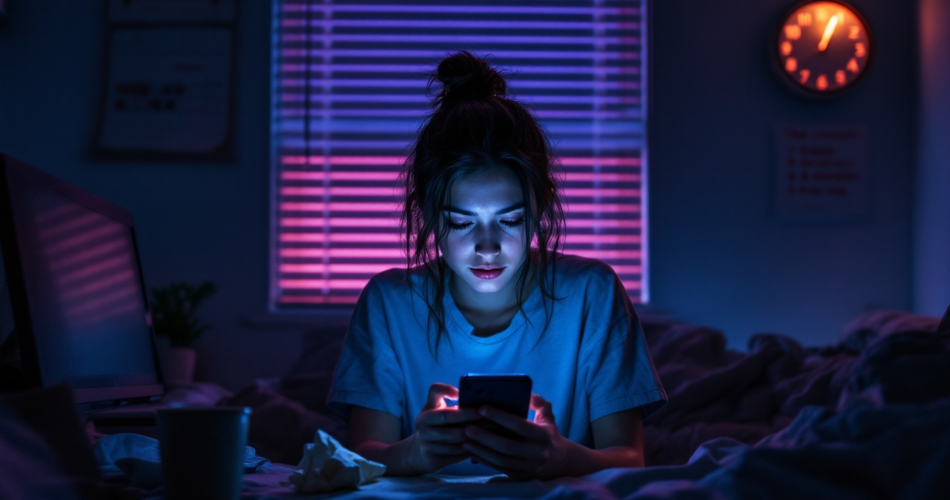Did you know that the average person spends over two hours daily on social media? For many, this statistic goes far beyond just casual scrolling—it highlights a growing dependence that can take a serious toll on mental, emotional, and physical health. This phenomenon, known as social media addiction, is increasingly prevalent in a digital-first world where notifications, likes, and endless content keep many stuck in a dopamine-fueled loop.
If you’re feeling overwhelmed, frustrated, or even trapped by how much social media is dictating your life, there’s hope. In this guide, we’ll explore what social media addiction is, how it’s affecting lives, and most importantly, actionable steps for social media addiction help. Let’s dive in and take the first step toward digital wellness.
Table of Contents
- What Is Social Media Addiction?
- How Social Media Addiction Is Impacting Lives
- Social Media Addiction Help: Steps to Regain Control
- Practical Tips to Break Free from Social Media Dependency
- Digital Wellness Tools and Resources for Support
- FAQs
- Conclusion
What Is Social Media Addiction?
Social media addiction can be defined as the excessive and compulsive use of social networks, to the point where it impairs daily life. People struggling with this form of addiction often find themselves endlessly scrolling, constantly checking notifications, and feeling anxious or irritable when not online.
Definition and Characteristics
Some signs of social media addiction include neglecting responsibilities to spend more time online, losing track of time, and experiencing withdrawal symptoms like restlessness or irritability when unplugged. If you’ve repeatedly tried cutting down but failed, these could be red flags.
Why Is Social Media Addictive?
Social media platforms are designed to be addictive. Algorithms prioritize content that keeps you engaged, while dopamine-driven feedback loops—like likes, comments, and shares—offer instant gratification. Meanwhile, the fear of missing out (FOMO) convinces users to stay connected constantly, creating a vicious cycle.
How Social Media Addiction Is Impacting Lives
Mental and Emotional Health Consequences
Excessive social media use has been linked to higher rates of anxiety, depression, and loneliness. Constant comparisons with seemingly perfect lives online can damage self-esteem and create a false narrative of inadequacy.
Social and Professional Repercussions
Relationship breakdowns are common as in-person interactions take a backseat to screen time. Moreover, excessive use of social platforms often disrupts workplace productivity, leading to missed deadlines and lower job performance.
Social Media Addiction Help: Steps to Regain Control
If you’re ready to take control, here’s how to start:
Acknowledging the Problem
Recognizing that you may have a problem with social media is the first step. Start by assessing your relationship with these platforms—are they adding value to your life, or are they causing stress and distraction?
Detox Strategies
Consider beginning with a social media fast where you avoid platforms for a set period. Use your device’s screen time tracking features to set limits. Small breaks can offer clarity and help identify other rewarding offline activities.
Practical Tips to Break Free from Social Media Dependency
Setting Boundaries and Goals
Set concrete boundaries, such as no screen time during meals or after a specific hour in the evening. Replace online interactions with in-person connections or hobbies like reading, painting, or exercising.
Mindfulness and Mental Health Practices
Incorporating practices like mindfulness and meditation into your daily routine can reduce anxiety and help you detach from the emotional grip of social media. Additionally, cognitive-behavioral therapy (CBT) has shown positive results for those managing compulsive tech habits.
Digital Wellness Tools and Resources for Support
Apps for Screen Time Management
Leverage technology to regain control by using apps like StayFree, Freedom, or ScreenTime to monitor and limit your usage. These tools often feature customizable alerts to keep you accountable.
Joining Support Groups and Communities
Connecting with like-minded individuals can be incredibly empowering. Consider joining online forums or local meetups focused on digital detoxing and shared experiences.
FAQs
What are the warning signs of social media addiction?
Warning signs include compulsive scrolling, neglecting responsibilities, withdrawal symptoms (irritability when offline), and unsuccessful attempts to reduce usage.
How can I balance using social media without becoming addicted?
Set time limits, prioritize in-person interactions, and regularly evaluate whether your usage aligns with your life goals or detracts from them.
Are there professional resources available for social media addiction help?
Yes, therapists and counselors specializing in behavioral addiction can offer personalized strategies. Many also provide online options for accessibility.
Can social media addiction affect physical health?
Yes, prolonged screen time can lead to conditions like eye strain, poor posture, sleep disturbances, and even reduced physical activity.
What are some signs that I need a complete social media break?
Signs include sacrificing sleep, ignoring loved ones, and experiencing heightened anxiety or stress tied to online interactions or absence.
Conclusion
Social media addiction is a modern-day challenge affecting millions, but it’s not insurmountable. Through self-awareness, actionable steps, and the use of helpful tools, you can regain control and prioritize your well-being. It’s never too late to break free, rebuild healthier habits, and reclaim your time. Start your journey toward a balanced, meaningful relationship with technology today—because your mental and emotional health matter most.
Looking for more guidance on social media addiction help? Take the first step by exploring expert resources or connecting with a support group to empower your journey toward digital wellness.


